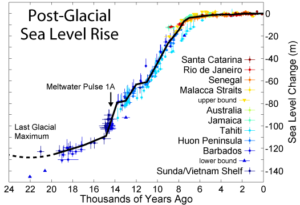by GWPF, May 17, 2018
The UK government has today announced measures that honour in part its manifesto promise to remove needless obstacles to shale gas exploration [1].
The Government is offering to:
-
Streamline the planning process for shale gas
-
Set up a Shale Environmental Regulator, and a Planning Brokerage Service to support the process
-
Allocate £1.6m to support local authorities handling shale gas planning applications
-
Consult on whether early stage shale gas exploration should be classed as “permitted development” not requiring planning consent
-
Consult on the criteria for bringing shale gas development within the scheme for Nationally Significant Infrastructure Projects (NSIP)
(…)
See also here
by Andrea Ayemoba, May 21, 2018 in AfricaBusinessCommunities
Shell Nigeria Gas (SNG) Limited has increased its domestic gas distribution capacity by 150% over the last six months. The increase in capacity will enable the company to distribute more than 100 million standard cubic feet of gas per day (MMscf/d) to businesses in its western operations.
(…)
by Pavol Szalai, May 21, 2018 in Euractiv
There is a strong possibility that Poland will build a floating Liquefied Natural Gas (LNG) terminal in Gdańsk, according to Fred H. Hutchison, who says “a lot of gas” can come to Central European markets this way.
Fred H. Hutchison is president and CEO of LNG Allies, an industry association working to expedite and maximise US exports of liquefied natural gas (LNG). In Bratislava, Hutchinson gave a speech at the Energy Committee of the American Chamber of Commerce.
Imports of natural gas from Russia have increased over the years and represented 34% of EU’s supply in 2016 according to ACER. Given the cheap price of Russian gas, do you see a window of opportunity for Amercian LNG on the European market?
(…)
by Andy May, May 19, 2018 in WUWT
Al Gore wrote in the Huffington Post (August 28, 2014) that the need for “bold action” to curtail “old dirty sources of energy … is obvious and urgent.” The proper scientific response to an assertion like that is why? How can I test this idea? Science is not a belief, it is a method of testing ideas. We use an idea to make predictions and then we gather data to see if the predictions are correct. If the predictions are accurate, the idea survives. If any of the predictions fail, the idea is disproven, and it must be modified or simply rejected.
by James Spry, April 19, 2018 in Climatism
A new study, published in Nature by serial reef alarmist Prof Terry Hughes, Director of the ARC Centre of Excellence for Coral Reef Studies at James Cook University, examines the link between the level of heat exposure from the 2015/16 super El Niño, “resulting in coral bleaching and ultimately coral death.“
(…)
See aslo here
by Wikimedia Commons, 2018
Over the last 20,000 years, sea level has rise about 400 feet. @algore say the last 2 inches are your fault (in Steve Goodard, May 20, 2018)


La géologie, une science plus que passionnante … et diverse


